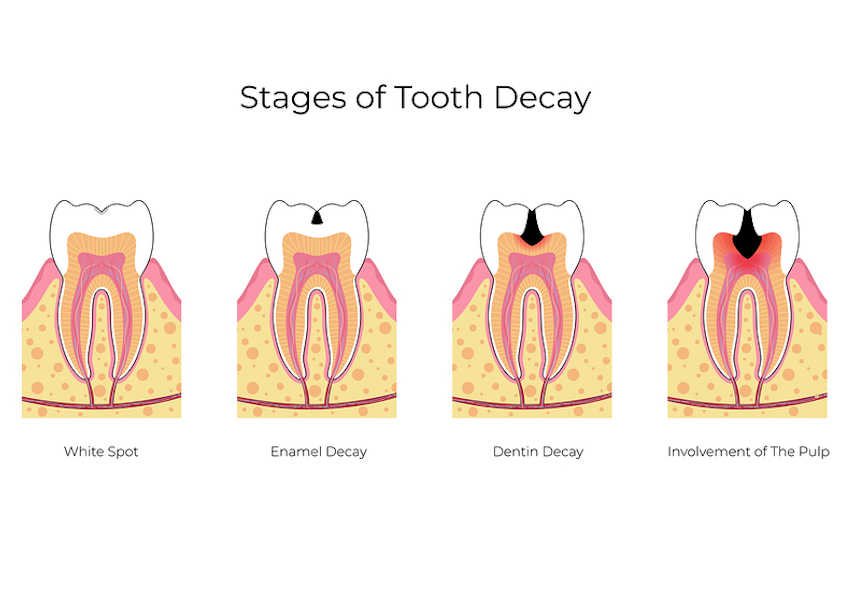
In this message from Neal C. Johnson DMD in Billings MT we discuss something about cavities you might not know. You may have heard that once tooth enamel is eroded, it’s gone forever. This is not entirely true. In the earliest stage of enamel erosion, a cavity can be reversed.
There are five main stages to cavities. Our team has listed them below to keep you informed.
Stage 1: Attack of the Little White Spots
Reversible: Yes
The tooth begins to show signs of damage. White spots appear. They are under the surface of the enamel, but you can see them from the outside. Demineralization will result in these spots. When they occur in children’s molars, it can be easy for parents to miss them. That’s why daily dental hygiene and regular dental exams are crucial. At this stage, it’s possible to halt a cavity before it needs a filling. Dental hygiene can stop the erosion. Fluoride can remineralize the enamel.
Stage 2: Enamel Decay
Reversible: No, but the tooth can probably be saved
Did you know that tooth decay begins under the surface of the enamel? The visible enamel is intact for the first part of Stage 2. Then the hole busts through the surface.
Stage 3: Going Deeper Into the Dentin
Reversible: No, but if you act fast, the tooth might not need a root canal.
The decay breaks down the enamel and hits the soft dentin layer that lies below. This is an advanced cavity. The good news? The decay hasn’t yet reached the pulp. It will, however, start to cause pain.
Stage 4: The Decay Hits the Pulp
Reversible: No. Must be treated with a root canal.
Hopefully, no patient will ever suffer this stage. It is very painful. The infection has reached the pulp where the nerves are located. Unfortunately, a root canal is the only treatment option. Unless, of course, the tooth is extracted.
Stage 5: Abscess Distress
Reversible: No, and it can be life-threatening.
The decay and infection have traveled through the pulp and out the end. In the final stage, the infection drills through the tip, after which it reaches the tissue and bone, surrounding the tooth root. The area swells up and it’s exceptionally painful. It’s also hazardous for anyone’s health. This is a serious infection that can spread to other parts of the body. Abscesses originating in a tooth can be fatal.
Protect yourself and your loved ones from tooth decay so you all have a healthy smile for life. Patients from throughout Lockwood, Billings Heights, and Laurel come to Neal C. Johnson DMD in Billings MT for family and restorative dentistry. Contact us today!
Contact Neal C. Johnson DMD:
406-656-2700
Location (Tap to open in Google Maps):
176 S 32nd St W Ste 3
Billings, Montana
59102







